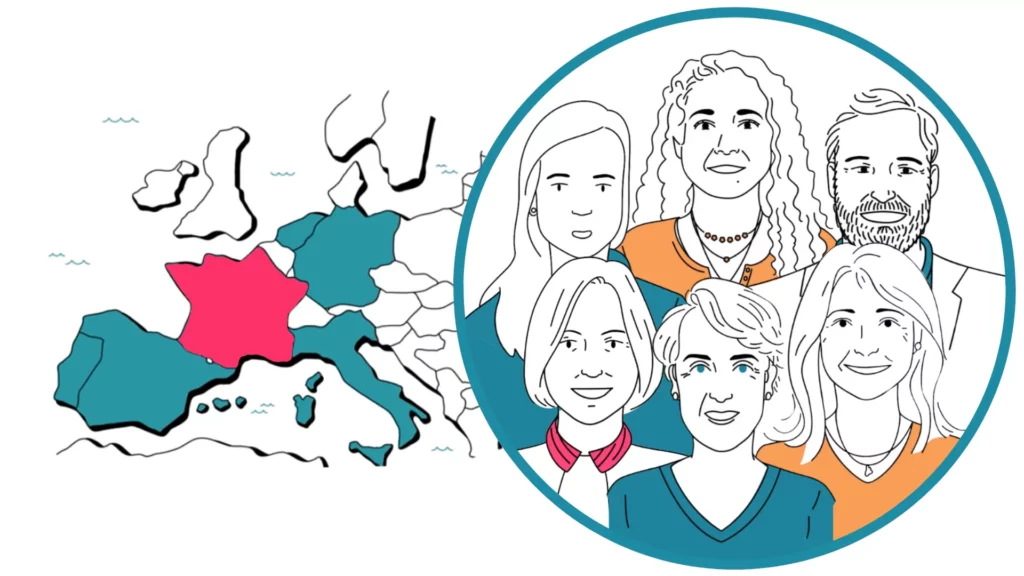Following the daily updates we are sending out to our clients centrally, we thought to publish this update on our local Dutch website too. With all the changes societies are going through in an attempt to stay on top of the situation, it can become quite unclear where we stand with what is allowed and what is not. Here’s an update of today’s situation. Contact us if you would like to be added to our mailing list concerning the situation in all of our countries: Spain, Portugal, France, Italy and The Netherlands.
Amsterdam, July 6 – 50.657 confirmed cases (36 NEW since Yesterday), 6.128 deaths (1 NEW since Yesterday), as reported by Worldometers.
RESTRICTIONS
At this moment in time, the outbreak seems to be under control and from July 1 onwards, most restrictions are lifted. Social distancing remains expected from everyone at all times. Working from home and staying at home as much as possible remains the norm:
- Always keep 1,5 meters distance, this does not apply for people in one household;
- Wash hands regularly;
- Sneezing in your sleeve;
- Use paper tissues;
- When there are symptoms, you stay at home and your family members stay at home too;
- Events where signing and shouting would occur (super spreading events like football matches etc.) are not allowed;
- Discotheques and night clubs remain closed;
- Call 0800 1202 to be tested.
LOCAL UPDATES
From 1 July on, the National Institute for Public Health and the Environment (RIVM) will no longer publish a daily update on the increase in the number of people who tested positive; the number of hospital admissions (of patients with COVID-19); the number of people who died as a result of the novel coronavirus.
From July 7th onwards, the RIVM is switching to a weekly update containing more information. The data on the coronavirus Dashboard (only in Dutch) provided by the Dutch national government will be updated daily.
TRAVELLING
NL is following the European Member States agreement on gradual and partial lifting of the EU travel ban. Please visit www.netherlandsandyou.nl
From July 1 onwards, the Netherlands starts lifting the travel restrictions for residents of the following third countries: Algeria, Australia, Canada, Georgia, Japan, Montenegro, Morocco, New Zealand, Rwanda, Serbia, South Korea, Thailand, Tunisia, Uruguay and China*(*The condition of reciprocity explicitly applies to China: the EU will only open to China if China opens to EU citizens). Residents of these countries can regain access to Europe (all EU and Schengen Member States and the UK), regardless of the purpose of travel. Member States ultimately determine how they implement the lifting of the travel ban for listed countries. It is therefore important that visa applicants inform themselves about the possibilities to travel within the Schengen area before traveling.
EXEMPTIONS
For countries where travel restrictions for Residents continue to apply, the following categories of people will be exempted from the restrictions:
- EU citizens (including the UK) and their family members
- Residents of Norway, Iceland, Switzerland, Liechtenstein, Andorra, Monaco, San Marino and the Vatican
- Long-term EU residents and their family members
- Travellers with an essential function or need, as listed in the Recommendation
- Holders of Dutch long-stay visa
- Third-country nationals holding a residence card or a residence permit in accordance with Directive 2003/109/EC (LTR Directive)
- Third-country nationals who derive their right of residence from other European Directives or from the national law of a Member State.
- Border workers
- Persons employed in the transport of goods and other transport personnel, to the extent necessary, this includes container ships, bulk carriers (e.g. ore or coal), tankers (fuels and chemicals), fisheries, persons employed in the energy sector, i.e. oil and gas platforms and wind farms as well as offshore companies providing services to this sector, and flight crew
- Seafarers in the possession of a seaman’s book (please note: this does not include seafarers on commercial yachts and pleasure boating)
- Diplomats
- Military personnel
- Personnel of international and humanitarian organizations
- Persons who have compelling reasons to visit their families; An exceptional case is visiting a terminally ill family member and attending a funeral. It is intended for first-degree and second-degree family members. Partner and children are first-degree and grandchildren are second-degree.
- Transit passengers who wish to travel via the Netherlands to another third country (non-EU) and who do not leave the international transit zone of the airport
- Persons in need of international protection; the border procedure applies in full
- Persons who are admitted for humanitarian reasons
- Students
- Knowledge migrants.
SELF-QUARANTINE
Everyone arriving in the Netherlands from a high-risk area is strongly advised to self-quarantine for 14 days immediately after arrival. Within the EU this applies to travelers from Sweden and the United Kingdom. For an overview of high-risk areas outside the EU, see the EASA list.
The situation and regulations in the Netherlands will be re-assessed around 1 September, 2020.


